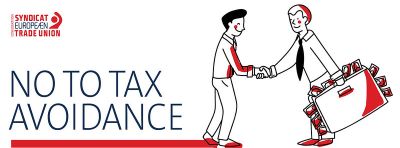
Member States are providing direct public support to companies facing the COVID-19 outbreak. The European Union has pledged many different financial instruments to assist the Member States in their action to support economic activities of companies and provide income replacement to workers.
In providing financial assistance, Denmark and Belgium are on their way to impose conditionalities to companies accessing public support in times of financial stress. Denmark already banned companies that are registered in tax havens from accessing financial aid during the COVID-19 pandemic, that are proved to evade their tax obligations and that distribute dividends and bonuses. Belgium is planning to do the same.
The ETUC welcomes these developments and urges the European Union and all Member States to follow this example and establish similar conditionalities for their financial assistance to companies.
When considering the provision of financial assistance, only the companies that have complied with all the rules in a transparent and honest manner regarding their tax obligations and their duties towards their workers should get access to such assistance.
The ETUC is also opposed to any kind of public financial support, access to the still to-be-adopted SURE programme, public procurement and access to the ECB PEPP programme to companies having at least one subsidiary in tax heavens, currently paying dividends, practicing share buybacks, delivering executive bonuses or laying off workers.
To avoid any ambiguity, the ETUC demands companies having recourse to the above schemes to provide annual public Country-by-Country reports as it is already the case in all circumstances for banks and investment firms since 1 January 2015[1].
For multinational companies, the conditionalities should go further and not only request tax transparency and respect for workers’ rights, but also the full respect of the United Nations Guiding Principles on Business and Human Rights, employment and environmental protection throughout their value chains.
[1] See Directive 2013/36/EU of the European Parliament and of the Council of 26 June 2013.
